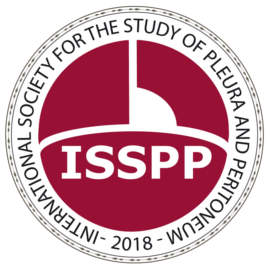ISSPP is proud to announce that the first collaborative publication of ISSPP researchers has been published online. A standardized survey with 82 closed-ended questions was sent online to active PIPAC centers. The survey inquired about center demographics (n = 8), technique (n = 34), treatment and safety protocol (n = 34), and indications (n = 6).
Overall, 62 out of 66 contacted PIPAC centers answered the survey (response rate 93%). 27 centers had performed >60 PIPAC procedures. A consensus higher than 70% was reached for 37 items (50%), and higher than 80% for 28 items (37.8%). The topics with the highest degree of consensus were safety and installation issues (93.5% and 80.65%) while chemotherapy and response evaluation were the least consensual topics (63.7 and 59.6%). The attitudes were not influenced by volume, PIPAC starting year, type of activity, or presence of peritoneal metastases program.
Homogeneous treatment standards of new techniques are important to guarantee safe implementation and practice but also to allow comparison between cohorts and multi-center analysis of merged data including registries. Efforts to avoid diversification of PIPAC practice include regular update of the PIPAC training curriculum, targeted research and a consensus statement.
Sgarbura O, Villeneuve L, Alyami M, et al. Current practice of pressurized intraperitoneal aerosol chemotherapy (PIPAC): Still standardized or on the verge of diversification? [published online ahead of print, 2020 Aug 29]. Eur J Surg Oncol. 2020;S0748-7983(20)30712-5. doi:10.1016/j.ejso.2020.08.020

